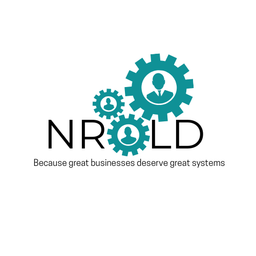Monetize Accounting and Bookkeeping Skills
Your accounting and bookkeeping skills are the backbone of every successful company. This expertise is not just essential; it is highly valuable and in constant demand.

This guide provides a practical, step-by-step framework to help you monetize your accounting and bookkeeping skills.
Step 1: Build Your Professional Foundation and Choose Your Niche
Before you can attract paying clients, you need to establish yourself as a credible professional. This foundation is about building trust and showing that you are an expert.
1. Get Certified and Master a Specific Software.
Certifications are proof of your expertise. They tell clients you meet a professional standard.
- For Accountants: A CPA (Certified Public Accountant) is the gold standard.
- For Bookkeepers: Consider becoming a Certified Bookkeeper (CB).
- Software Certifications (Crucial for Freelancers): Get certified in the tools that small businesses use. Become a QuickBooks Online ProAdvisor or a Xero Certified Advisor. These programs are often free and list you in their directories, which is a great source of leads.
2. Choose a Niche to Become a Specialist.
You cannot be the perfect bookkeeper for everyone. If you try to serve all businesses, you will compete on price. If you specialize, you compete on value. A niche allows you to become an expert in a specific industry's challenges.
Examples of Strong Niches:
- E-commerce businesses (they have unique needs like sales tax and inventory).
- Construction companies (they require job costing and progress billing).
- Creative agencies and freelancers (they need help with project profitability).
- Restaurants and cafes (they have complex payroll and tip reporting).
- Non-profits (they have specific reporting requirements).
When you choose a niche, you learn the industry's language. This allows you to offer more value, solve bigger problems, and charge higher prices.
Actionable Advice: Update your LinkedIn profile to reflect your niche. Instead of "Bookkeeper," your headline should be "Certified QuickBooks ProAdvisor for E-commerce Businesses."
Step 2: Start with Active Income: Freelance Bookkeeping and Accounting
Freelancing is the most direct way to monetize your skills. You offer your services to clients for a monthly fee. This is the foundation of most independent accounting careers.
What services can you offer?
- Monthly Bookkeeping: This is the core service. It includes bank and credit card reconciliations, categorizing transactions, and generating financial statements (Profit & Loss, Balance Sheet).
- Accounts Payable and Receivable: Managing bills and invoices for your clients.
- Payroll Processing: A valuable add-on service that many small businesses need.
- "Cleanup" Projects: Many businesses have months (or years) of messy books. Offer a one-time project to clean it all up. This is often a high-value service.
- Tax Preparation: If you have the qualifications, offer tax planning and filing services for businesses and individuals.
How to Find Your First Clients:
- Your Network: Let your friends, family, and former colleagues know you are starting a business. Your first client is often someone from your personal network or a referral.
- Local Networking: Join your local Chamber of Commerce or a business networking group. Small business owners are your ideal clients, and they trust local experts.
- Online Platforms: Use Upwork to find your first few clients. It is competitive, but it's a great way to build a portfolio of work. Optimize your profile for your niche.
- Partner with Other Professionals: Connect with lawyers, business coaches, and web designers. They often work with new businesses and can be a great source of referrals.
Step 3: Level Up to Advisory and Consulting Services
Once you are handling a client's books, you are in a perfect position to offer higher-value services. Bookkeeping is about recording the past. Advisory services are about shaping the future. This is where you can significantly increase your income.
What advisory services can you offer?
- Virtual CFO (Chief Financial Officer) Services: Act as a part-time CFO for small businesses. This can include regular meetings to review financial health, set goals, and provide strategic advice. This is often a high-ticket retainer service.
- Cash Flow Forecasting: Help businesses predict their future cash flow so they can manage their finances better.
- Budgeting and Goal Setting: Work with clients to create a budget and track their performance against it.
- Software Setup and Training: Charge a one-time fee to help businesses set up and learn how to use accounting software like QuickBooks or Xero.
How to transition: Start with your existing bookkeeping clients. Once their books are clean and organized, schedule a meeting to review their financial reports. In that meeting, point out an opportunity or a risk you see in their numbers. This naturally opens the door to a conversation about advisory services.
Step 4: Build Scalable Income with Products and Education
This path allows you to stop trading your time for money. You create a resource once and sell it many times. This is how you can scale your income beyond the number of hours you can work.
What products can you create?
- Online Courses: Create a course for business owners or other bookkeepers.
- Example for business owners: "QuickBooks Online for Beginners."
- Example for professionals: "How to Start Your Own Virtual Bookkeeping Business."
- You can host your courses on platforms like Teachable or Udemy.
- E-books and Guides: Write a detailed guide on a specific topic.
- Example: "The Small Business Owner's Guide to Understanding Financial Statements."
- Templates: Sell pre-built spreadsheet templates on a platform like Gumroad or Etsy.
- Example: A cash flow forecasting template, a business budget template, or an invoice template.
How to get started: Pay attention to the questions your clients ask you over and over again. If every one of your clients asks about the same thing, that is a great topic for a course or a template.
Action builds business. Start small, start smart—then scale.

This content is AI-assisted and reviewed for accuracy, but errors may occur. Always consult a legal/financial professional before making business decisions. nrold.com is not liable for any actions taken based on this information.


